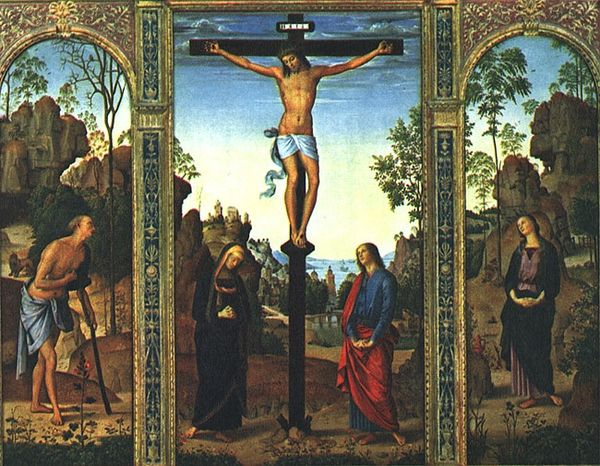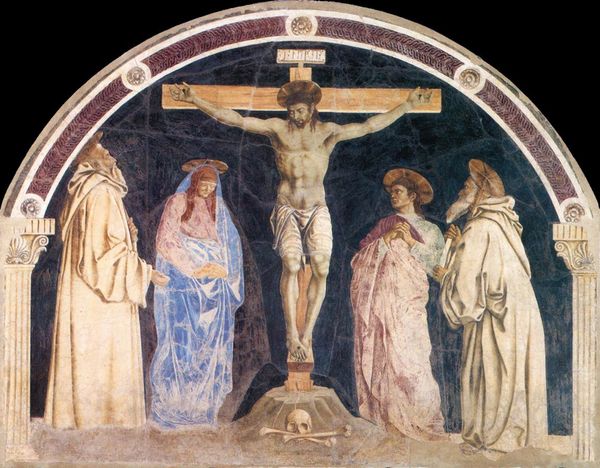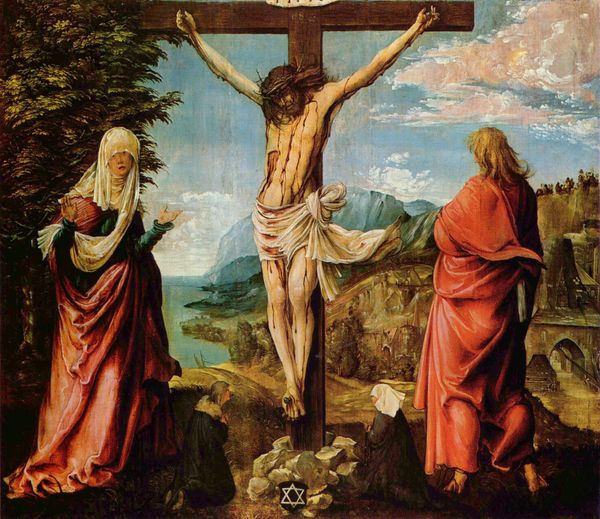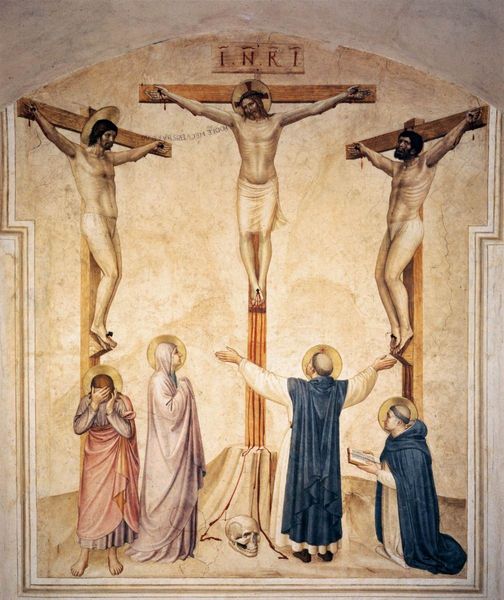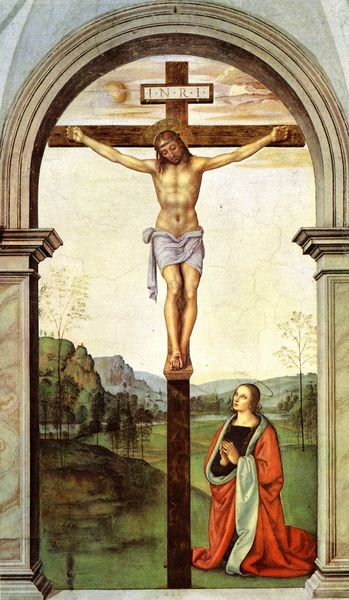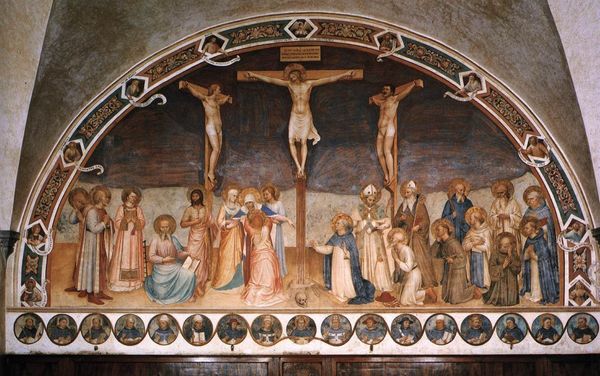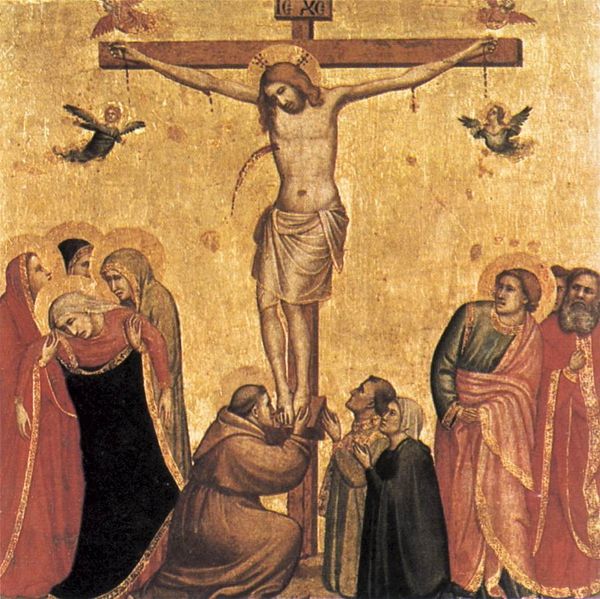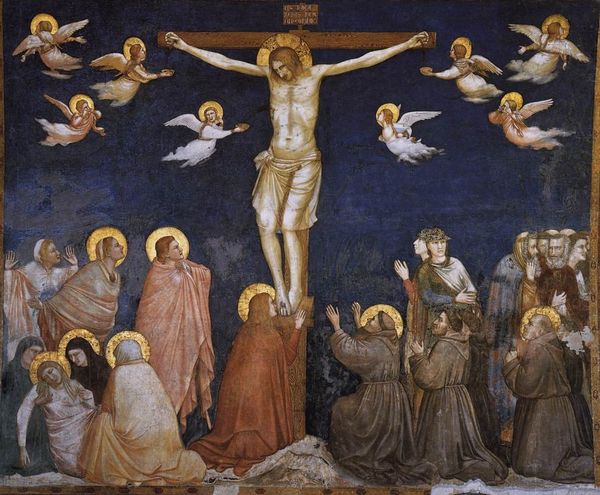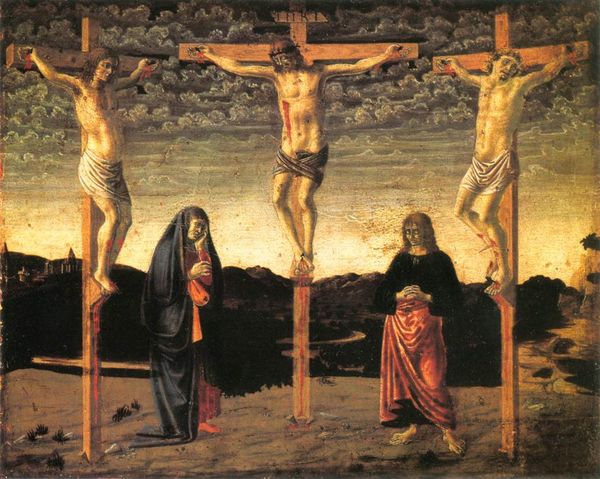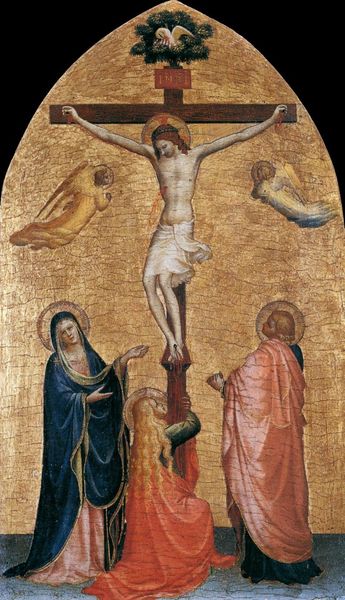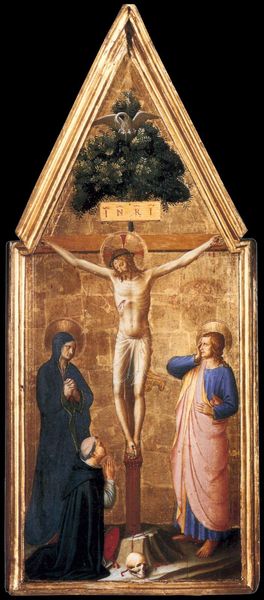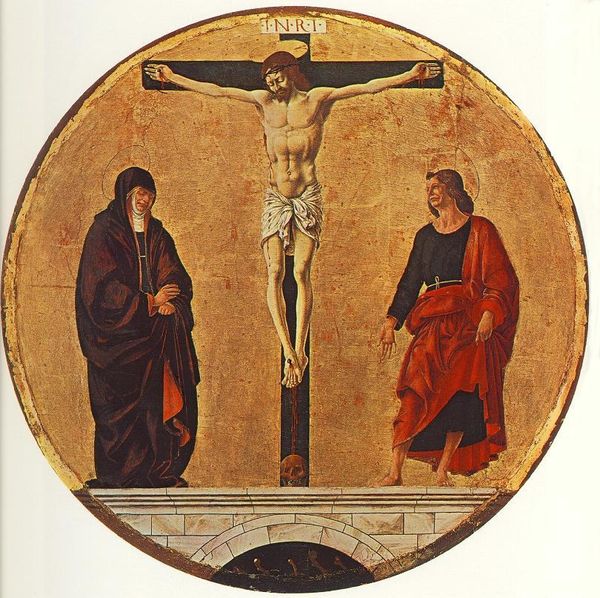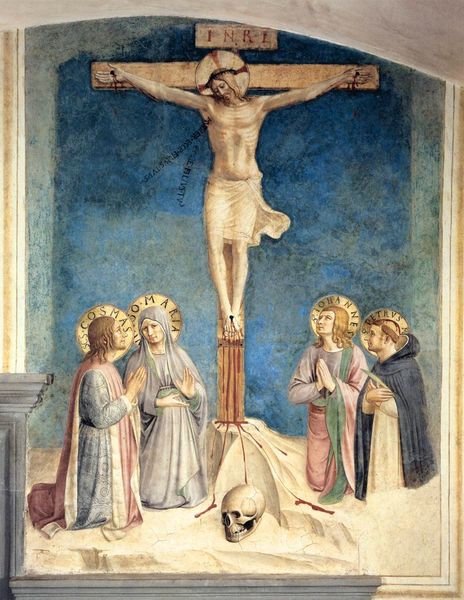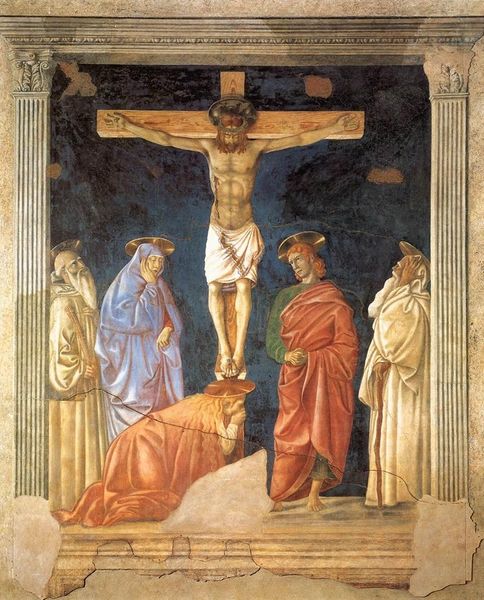
painting, fresco, architecture
#
painting
#
sculpture
#
landscape
#
holy-places
#
figuration
#
historic architecture
#
fresco
#
traditional architecture
#
jesus-christ
#
building art
#
arch
#
christianity
#
line
#
crucifixion
#
history-painting
#
italian-renaissance
#
architecture
#
historical building
Dimensions: 48 x 812 cm
Copyright: Public domain
Editor: Here we have Perugino's "The Pazzi Crucifixion," a fresco from 1496 residing in Santa Maria Maddalena dei Pazzi. There's a stillness to this fresco that strikes me. What are your thoughts? Curator: Looking at this fresco, I'm drawn to the materials and techniques employed. Fresco, as a medium, directly involves labor. The process of applying pigment to wet plaster demands speed and precision. It's a race against time. Editor: Absolutely, you can almost feel the artist's hand at work in the brushstrokes. Curator: Think about the availability and cost of pigments in 15th-century Florence. Ultramarine blue, derived from lapis lazuli, would have been particularly expensive, signaling patronage and power. Consider how that influences the symbolic representation itself. Is the wealth displayed subverting or supporting the image of Christian piety? Editor: Interesting! It makes you think about who exactly this piece was made *for*. Curator: And beyond that, how the artistic labour itself contributes to and comments on the message. The act of creating becomes a commentary. It wasn’t merely about depicting a religious scene but embedding a social and economic narrative within the work itself. What kind of narratives emerge for you considering the specific architectural setting? Editor: That’s fascinating! I hadn't considered the economic factors embedded in the choice of materials, or even in the laborious fresco technique. I guess it adds another layer of interpretation, making it a document of its time in more ways than one. Curator: Exactly, shifting our understanding from a straightforward religious depiction to a layered artwork embedded in material and labor relations.
Comments
No comments
Be the first to comment and join the conversation on the ultimate creative platform.
